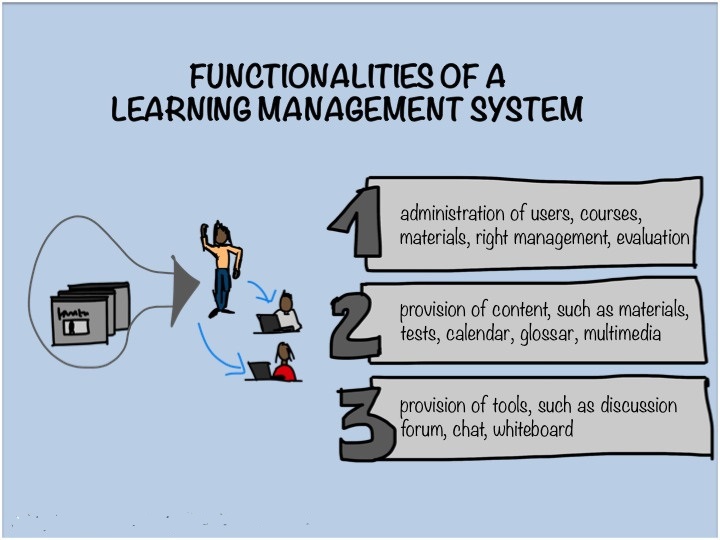LMS is the abbreviated form of Learning Management System—it’s a software program used for Educational Courses and Training Programs for the administration, documentation, tracking and reporting. It mainly focuses on online delivery but supports a range of uses. LMS is a very convenient system and helps the instructor deliver materials to the students. It involves formed and extremely vibrant way of learning and teaching with endless features.

Purpose of LMS:
One of the basic purposes of introduction of LMS is the compactness of the system. It makes the process of education easily accessible and equally interesting for the students. Some LMS providers include & quot;performance management systems & quot;which encompass employee appraisals, competency management, skills-gap analysis, succession planning and multiple assignments. The fact that online learning programs are time-saving, makes them more desirable, especially for working students.
The Root of e-Learning:
With the evolution of technologies and software development, education on Internet has come into practice among a large chunk of the world. However, LMS forms the basis of e-Learning. It organizes the contents of a particular course or subject or topic in one location rather than spreading them out over hard drives and other secondary storage devices. Through a cloud-based LMS, many other members with distinct login ID and passwords can access the documents without any fear of losing them.
Repeated Study by LMS:
In this world of immense digressions, it is almost impossible for any student to read something once and remember it forever. As a result, revision is a must. LMS facilitates unlimited access to any uploaded course for each and every enroller of that particular course.
Performance Analyst:
LMS generally provides the facility of tracking the process of a particular learner. It also provides a comparative analysis of the performance of each of the learners through graphs. These graphs are equally important for the learner as well as the instructor. Most of the LMSs feature analytic tools that enable the learners to know their weak areas and strong areas of a particular course. This helps the students to know what to study more.
Variety in Education by LMS:
New modules can be added as and when required– so there is always a process of constant editing. Thus, the system never becomes stagnant. Instead, it involves infinite expansion with compact and relevant modifications. LMS provides a lot of options– many courses are conducted on the same subject or topic. So, if a person fails to understand after studying from one site, he or she can go for more sites and forums.
Social Media for Learning by LMS:
Who says that Facebook pages are only for promoting societies and startups? Those days are gone when people used to burst into Twitter and follow different celebrities with thousands of retweets. What’sApp groups have started changing their names to discussion groups on diverse topics. LMS has made it easy to incorporate social learning into the e-Learning strategy. You can include links to Facebook and Twitter pages, LinkedIn groups and online forums which will be beneficial for your learners. Social media sites can also be used for attracting new learners and presenting e-Learning exercises which can become popular in the peer circle. So let all of us start utilizing free trials, paid or non-paid courses, documents and audio visual lectures as per our requirements. There’s nothing more precious than knowledge and only few things are as endless as learning.

You must be logged in to post a comment.